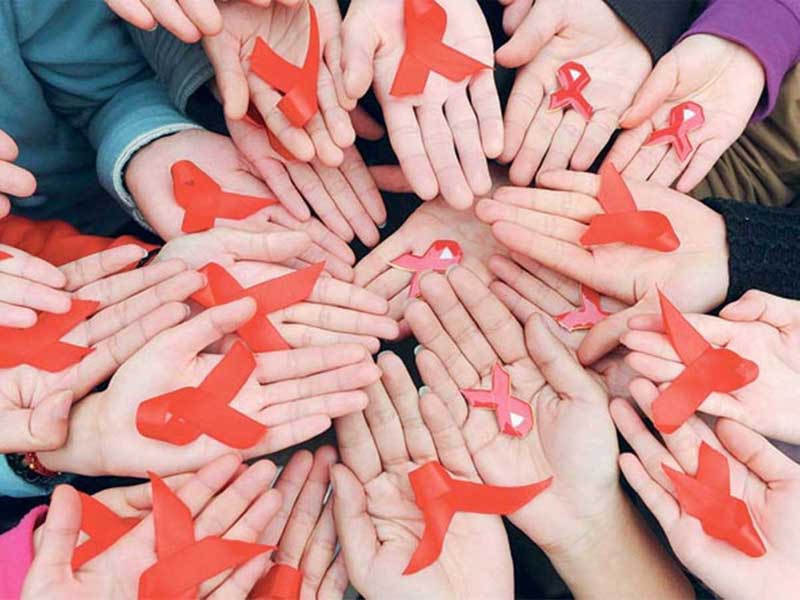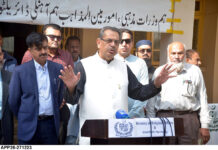
The cases emerged during the day-long blood screening exercise, which was started by the provincial government after an outbreak of HIV-positive cases in Larkana.
A total of 517 people were tested in the Shikarpur villages of Dhakkan, PirbakhshTheem and SarangShar. In Dhakkan alone, eight children – the youngest among them aged one – and a woman were detected as HIV-positive.
After the emergence of the cases, senior officials of the Health Department had a meeting in Dhakkan. Chaired by District Health Office GhulamShabbir Sheikh, the meeting decided to expand the blood screening drive to Dhakkan and surrounding villages.
It also resolved to initiate an awareness campaign to prevent the spread of HIV/AIDS in the area. Teams consisting of senior medical officers would now visit different villages to inform the people about preventative measures and encourage them to get tested. The meeting was informed that the infected children had been referred to the AIDS Treatment Centre in Larkana, where they would be treated free of cost under the Sindh AIDS Control Programme.
It was revealed during the meeting that a primary reason behind the spread of HIV cases was quacks and unregistered laboratories and maternity homes, where syringes were reused on patients. Officials decided to launch a crackdown on such establishments in Shikarpur and beyond.
On the other hand, at least 215 HIV-positive cases have been reported in Ratodero district of Larkana, of which 181 were children aged between two months and 12years.
Sindh AIDS Control ProgrammeIn-charge DrSikanderMemon told a private news channel that more than 5,000 people were screened for the virus in the area. Last month, police arrested a doctor suspected to be responsible for the spread of HIV in Ratodero. Larkana continues to top the list of districts most affected by HIV in Sindh, with the total number of AIDS patients in Larkana at more than 2,400. In total, 76.1 million people worldwide have been infected with HIV, since the epidemic started in the 1980s. Some 35 million have died.
There is no vaccine to combat the virus, and infected people rely on lifelong anti-retroviral therapy to stop the virus replicating. Without treatment, HIV-infected people go on to develop AIDS, a syndrome that weakens the immune system and leaves the body exposed to opportunistic infections such as tuberculosisand some types of cancer.












